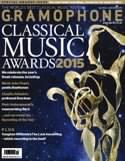Texte paru dans: / Appeared in: |
|
|
Outil de traduction (Très approximatif) |
|
|
Reviewer: David Vickers
Leonardo Leo (16941744) was regarded by his Neapolitan contemporaries as a learned composer. His contrapuntal abilities are scattered throughout the comic pastoral L’ambizione delusa (Naples, 1742), which pokes fun at the country peasant Lupino and his sister Cintia, who have unexpectedly inherited a fortune; they have hired the ex-city maid Delfina because she is their only acquaintance who can teach them how to behave aristocratically – their behaviour is instantly familiar as the folly of the nouveau riche whose funds far exceed the quality of their taste (they have purchased a panther for their menagerie, and havoc ensues when it breaks loose), and pretentious attempts to speak posh lead to amusing malapropisms. A tangled web of romantic infatuations fleshes out the comedy of their ‘deluded ambition’, and facilitates room for Leo’s varied arias in different low and high styles.
This staged performance was recorded at the Valle d’Itria festival in Puglia. The concise Sinfonia exposes not only the unaffected honesty of the warts-and-all live performance but also an uncomfortable lack of technical finesse from unstable strings. Onstage movements sound like thunderclaps; but once one gets past these technical distractions there is characterful buffo singing from the cast. Dynamic’s libretto (only online) reveals that several scenes are omitted, but proceedings are astutely paced by Antonio Greco. Some of the finest arias occur when the musical and literary idioms of serious opera are used, not merely as ironic parody but sometimes as potent sentimental outbursts; Silvio’s anguish upon realising that the fickle Cintia has transferred her affections elsewhere leads to an impressively turbulent aria that would not be out of place as a climax in a fully fledged tragedy (‘Dolente, dubbioso’). One cannot help wondering what first-rank singers and a top-notch string band could do with Cintia’s long simile aria ‘Io son qual Peregrina’ (with muted strings) and Ciaccone’s buffo aria ‘Vaghi occhietti vezzosetti’, and one can easily imagine how much more crackling flamboyance could be exploited if superior hands tackled Foresto’s mock-valorous ‘Nel cupo seno di notte oscura’ (featuring tongue-in-cheek heroic horns). Technical deficiencies mean that this performance ranks as a curiosity for those attracted to arcane corners of mid-18th-century Italian opera, but Leo’s skilful means of depicting the sentimental comedy through deceptively clever music emerge clearly enough to make one hope that before long his operas might receive proper attention from higher-class performers. |
|
|
|
|
|
Cliquez l'un ou l'autre
bouton pour découvrir bien d'autres critiques de CD |
|

/8007144076771.jpg)


